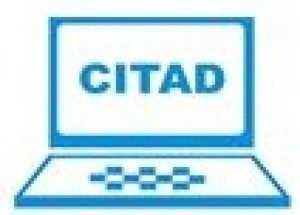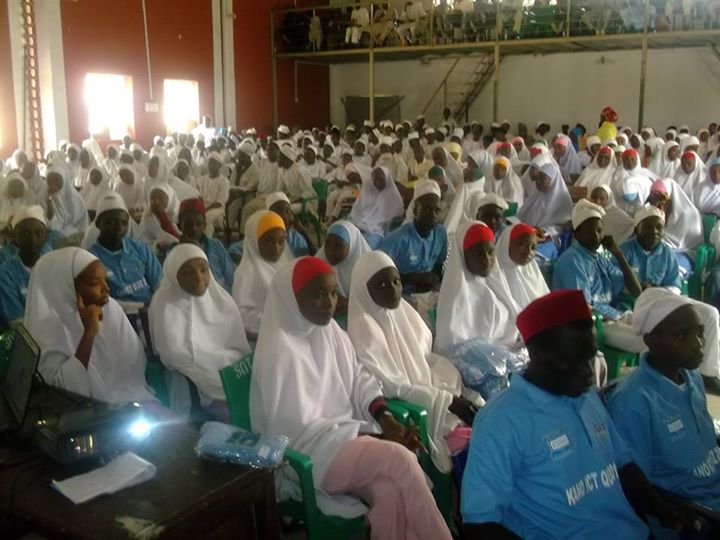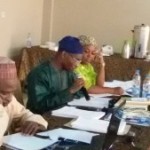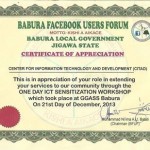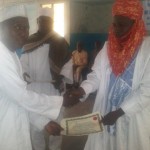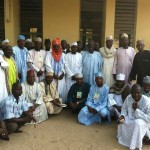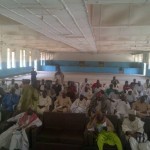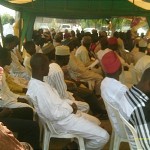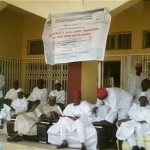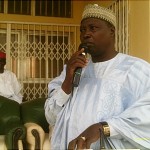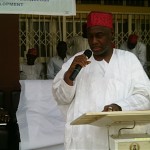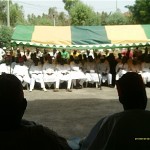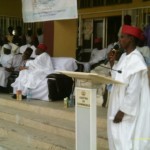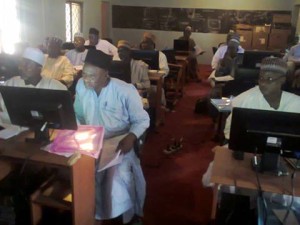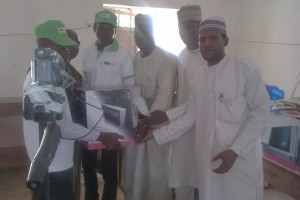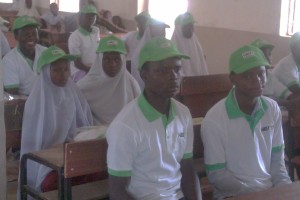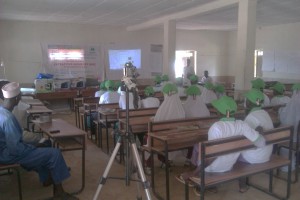
The Resilience of Nigerians?
By Adagbo Onoja.
As the Coordinator of the “National Conference on Community Resilience to Boko Haram Insurgencyâ€, Professor Jibrin Ibrahim must have developed a certain intellectual intimacy with the data and dynamics of resilience as to be sensitive to bringing all angles to it and avoid a celebratory discourse of the concept. This is the sort of conclusion one is compelled to reach from listening to him and from reading his last synthesis of the research project he superintended, (See “The Resilience of Nigeriansâ€, Daily Trust, May 12th, 2017). As one of the most formidable social scientists in Nigeria today; as one with ex-students spread all over the place; as a columnist and with the prospects of him presiding over the final write-up of the research report, his current engagement with resilience represents a frightening development. It cannot be less in the light of the claim, and belief even, for instance, that Ulrich Beck’s World Risk Society argument is the real paradigm which grounded most recent security practices, particularly in counter-terrorism and Homeland Security. The implication is that Jibo (as he is more popularly known) could end up writing security but from an indigestible mix of subdued nationalism and ‘compassionate’ neoliberalism. It is thus considered important to attempt to tame this temptation before he ends up singing a reality into being through discourse but a reality that would be incongruent with the shared vision of Nigeria that has remained unifying for most activists of the 1980s to date.
Even if taken at the level of the headline alone, Jibo’s column says a lot about his conception of resilience: it is there, the research discovered it and here we are. In other words, Jibo argues that Nigerians have sufficient adaptive skills, inherent in them or acquired in the face of threats. He lists them and the constraints that inhibited their full flight in the confrontation with Boko Haram in the north east. In doing so in the piece, Jibo did not notice when he slipped from analysis to propaganda at the point he wrote of the “remarkable capacity of the people to develop resilience and move on with their lives in spite of adversityâ€. It is a claim he took seriously enough as to try to bring it down to earth in the assertion towards the end of the piece about how more devastating Boko Haram would have been but for the exploitation of local initiatives in resilience.
 The first problem with this representation of the dynamics of resilience to Boko Haram is the applicability of the idea of communities that have moved on or out of entrapment in the assemblage of trauma that Boko Haram has occasioned in the north east region and Nigeria. Many would challenge such a claim with the subsisting degree of human vegetation in IDP camps, the threat of famine, the human waste in weekly bomb blasts in and around Maiduguri, the nightmare of the atrocious practice of strapping young girls with bombs which someone somewhere would be detonating on cue, among others. And this is in spite of the military’s involvement.
The first problem with this representation of the dynamics of resilience to Boko Haram is the applicability of the idea of communities that have moved on or out of entrapment in the assemblage of trauma that Boko Haram has occasioned in the north east region and Nigeria. Many would challenge such a claim with the subsisting degree of human vegetation in IDP camps, the threat of famine, the human waste in weekly bomb blasts in and around Maiduguri, the nightmare of the atrocious practice of strapping young girls with bombs which someone somewhere would be detonating on cue, among others. And this is in spite of the military’s involvement.
But no less problematic is a concept of resilience that does not distinguish between the cultural subjectivity of the people in fighting off Boko Haram and the market discourse of security that resilience is fundamentally about. Without that distinction, resilience came off as such an innocent lexicon in Jibo’s analysis. Resilience is not so much about the culturally specific coping innovations in the face of danger in that piece but a neoliberal discourse of security that might draw on such anthropological constitution of communities or the configuration of same in favour of moving the people from fear of to anticipation and adaptation to danger, including the confidence and happiness in relying on learnt adaptive skills to provide for their own safety. So, resilience thus has to do with indoctrination about coming to grips with the ‘post-secure’ world in which “the danger is disorderâ€. That is the disruption in the language of resilience analysis or the ‘risk society’ argument which 9/11 has been cited as the most significant confirmation. So, from posting risks, the unthinkable or complex uncertainty as the most key building block of post 9/11 world, resilience seeks individualization of the task of turning insecurity into opportunities rather than apprehension of it. The question then is if that conscious coming to terms with insecurity as opportunity was what the study saw in the north east and north west.
It is doubtful that any communities in predominantly peasant Africa would have been manifesting such attributes when the communities in Katrina in industrialised United States of America did not. Not when it has been claims of alienation from disqualification and denial against the post-disaster management of Hurricane Katrina because “the neoliberal post recovery required survivors to become ‘entrepreneurs’ and ‘empowered consumers†who are called customers, clients and consumers rather than citizens.  One of the most detailed studies of Katrina disaster management showed the complete neoliberal take-over of the terms of managing the Katrina disaster to the point where “contracts for various services were so numerous and complex that ‘FEMA, (the Federal Emergency Management Agency) even had to hire a contractor to award contracts to contractorsâ€.

Warisu O. Alli, Professor of International Relations at Nigeria’s University of Jos was @ the conference on resilience

Attahiru Jega, Professor of Political Science at Bayero University, Kano – Nigeria also attended
Prof Kathleen Tierney, the leading authority on resilience based at the University of Colorado has done an indicative listing of the leading drivers of resilience globally. They include The Baseline Resilience Indicators for Communities Framework; The Community and Regional Resilience Institute; The Rockefeller Foundation; The National Consortium for the Study of Terrorism and Responses to Terrorism based at the University of Maryland; The University of North Carolina’s Coastal Hazards Centre and The Centre for Risk and Economic Analysis of Terrorist Events. Notwithstanding the autonomy of idea and independent mindedness of intellectuals, the funding politics for these centres makes them inherently neoliberal incubation centres without them necessarily becoming supporters of neoliberal lens of the world.
The foregoing suggests the need to be careful in celebrating resilience. It is not an innocent concept. It is important to study the cultural or anthropological sensitivity or make-up of our people, their survivalist instincts in the face of rupture but carefully so in other not to fall prey to the market forces construction of resilience as a question of pushing responsibility for public safety to individuals and communities instead of probing macro structural context of risks. The truth is that our people, from the north to the south, do not have the resilience Jibo proclaims when we consider the nature of catastrophes that define the contemporary era – especially in the realm of global health, climate change, transnational terrorism and migration. How can we talk of resilience in counter-terrorism, for instance, when it is now basically a drone warfare affair? Energy would have topped the list if the United States were still an oil importing country, considering the Nixon and Carter doctrines. As things are today, one shudders to think what would happen when climate change starts manifesting around these shores. Unless magic happens and Nigeria overcomes her current confusion, the likelihood of people dying in thousands is almost a foregone conclusion. Neither our elite/political leaders nor the citizens believe in the threat from climate change, not to talk of anticipating and preparing for it. Yet, it is coming.
The study of resilience to Boko Haram stands at the threshold of breaking grounds in its promise of domesticating resilience in security studies in Nigeria, if not Africa. This is to the extent that it has enough data with which it can reconceptualise resilience as well as promote a discourse of resilience capable of reproducing itself for Nigeria’s national security, (that is to the extent that one could still talk of a national security in the age of globalisation). That way, it brings our engagement with the concept in line with Mohammed Ayoob’s critique of Emancipation paradigm of security. Contrary to Emancipation paradigm’s notion of security as freedom of the people from the constraints of the state, the US based Pakistani Political Scientist argued for positioning of the state as the definitive driver of Emancipation. His reason for saying so is that without state power, people in the ‘Third World’ cannot find their bearing in a world of power which is barren of honest brokers.
 CITAD and the United States Institute of Peace which has supported the research on resilience to Boko Haram have simply accepted and even implemented Ayoob’s position, by bringing together young researchers who have also brought their research findings to the table under the gaze of some of Nigeria’s most established social scientists. So, it could be argued that everything needed for this study to make a statement on resilience from this part of the world are on the ground except Jibo’s unit of measurement, otherwise known as Jibogram.
CITAD and the United States Institute of Peace which has supported the research on resilience to Boko Haram have simply accepted and even implemented Ayoob’s position, by bringing together young researchers who have also brought their research findings to the table under the gaze of some of Nigeria’s most established social scientists. So, it could be argued that everything needed for this study to make a statement on resilience from this part of the world are on the ground except Jibo’s unit of measurement, otherwise known as Jibogram.




 Two other worries that got contrary analyses were why some people still believe no girls were abducted from Chibok and why is the abduction mediatised more than that of hundreds of other victims in Boko Haram series of atrocities. The second is what sense does society make from the statement of those who said that Boko Haram were freedom fighters or the tendering of apologies to Boko Haram by some three governors sometimes in the past.
Two other worries that got contrary analyses were why some people still believe no girls were abducted from Chibok and why is the abduction mediatised more than that of hundreds of other victims in Boko Haram series of atrocities. The second is what sense does society make from the statement of those who said that Boko Haram were freedom fighters or the tendering of apologies to Boko Haram by some three governors sometimes in the past.


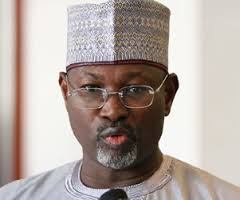
 It is a data rich report whose ranges can hardly be captured well very quickly. It had been two days of intense checking and cross-checking of data against conceptual and methodological claims, the end result of which could be a groundbreaking study of resilience in the African setting. In other words, the study of resilience strictly in terms of the subjective propensities of the people in the communities studied, resilience that has been completely outside of the influence of big business or market terms.
It is a data rich report whose ranges can hardly be captured well very quickly. It had been two days of intense checking and cross-checking of data against conceptual and methodological claims, the end result of which could be a groundbreaking study of resilience in the African setting. In other words, the study of resilience strictly in terms of the subjective propensities of the people in the communities studied, resilience that has been completely outside of the influence of big business or market terms.





